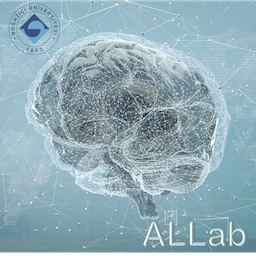Teaching
Special Topics in Deep Learning (CMPE597) Since 2021 Spring
Description: An introduction to artificial neural networks, deep learning, fundamental deep architectures, and their applications.
Learning Outcomes: The objective of this course is to provide the foundations of neural networks and introduce common deep learning models. Upon successful completion of the course, students are expected to gain an understanding of the following:
- fundamentals of learning from data paradigm
- perceptron and multilayer perceptron
- back-propagation algorithm
- optimization techniques in deep learning
- training neural networks, parameter tuning
- deep network architecture design
- convolutional neural networks, recurrent neural networks, auto-encoders, and deep generative models
- some popular applications of deep models.
Pattern Recognition (CMPE544) Since 2020 Fall
Description: This course will introduce the fundamentals of statistical pattern recognition with examples from several application areas. Topics include Bayesian decision theory, maximum likelihood and Bayesian parameter estimation, non-parametric techniques, linear discriminant functions, Tree methods, multilayer neural networks, bias and variance in regression and classification, resampling for estimating statistics, bagging, boosting, unsupervised learning and clustering.
Learning Outcomes: The objective of this course is to provide the foundations of statistical pattern recognition and its practical use. Upon successful completion of this course, students will have gained the necessary understanding on:
- Bayesian decision theory
- Parametric techniques and parameter estimation
- non-parametric techniques
- traditional machine learning models
- neural networks and an introduction to deep learning
Machine Learning (CMPE462) Since 2020 Spring
Description: An introduction to machine learning, including perceptron, linear regression, logistic regression, naive Bayes, decision trees, support vector machines, unsupervised learning, and neural networks. This class covers both the theory and the applications of machine learning.
Learning Outcomes: The objective of this course is to provide the foundations of machine learning and its practical use. Learning outcomes are summarized below:
- Knowledge of basic machine learning methods
- Implementation of prediction methods
- Experience with analysis of real data
Intro. to Probability and Statistics for Comp. Engineers (CMPE343) Since 2019 Fall
Description: Foundations of probability and statistics. Topics include elements of probability, random variables, expectation, variance, continuous and discrete distributions (e.g., Bernoulli, binomial, uniform, Gaussian, exponential, Poisson, gamma), sampling, sample statistics, point, and interval estimation, hypothesis testing, regression, and computational aspects of random variable generation, sampling and estimation.
Learning Outcomes: The objective of this course is to provide the foundations of probability theory and statistics. Upon successful completion of this course, students will have gained the necessary understanding on:
- laws of probability theory and its applications
- use of Bayes’ theorem
- concept of random variables
- probability distributions and their properties
- concept of sampling
- concept of hypothesis testing
- concept of regression
- practical implementation of some of the probability and statistics concep
